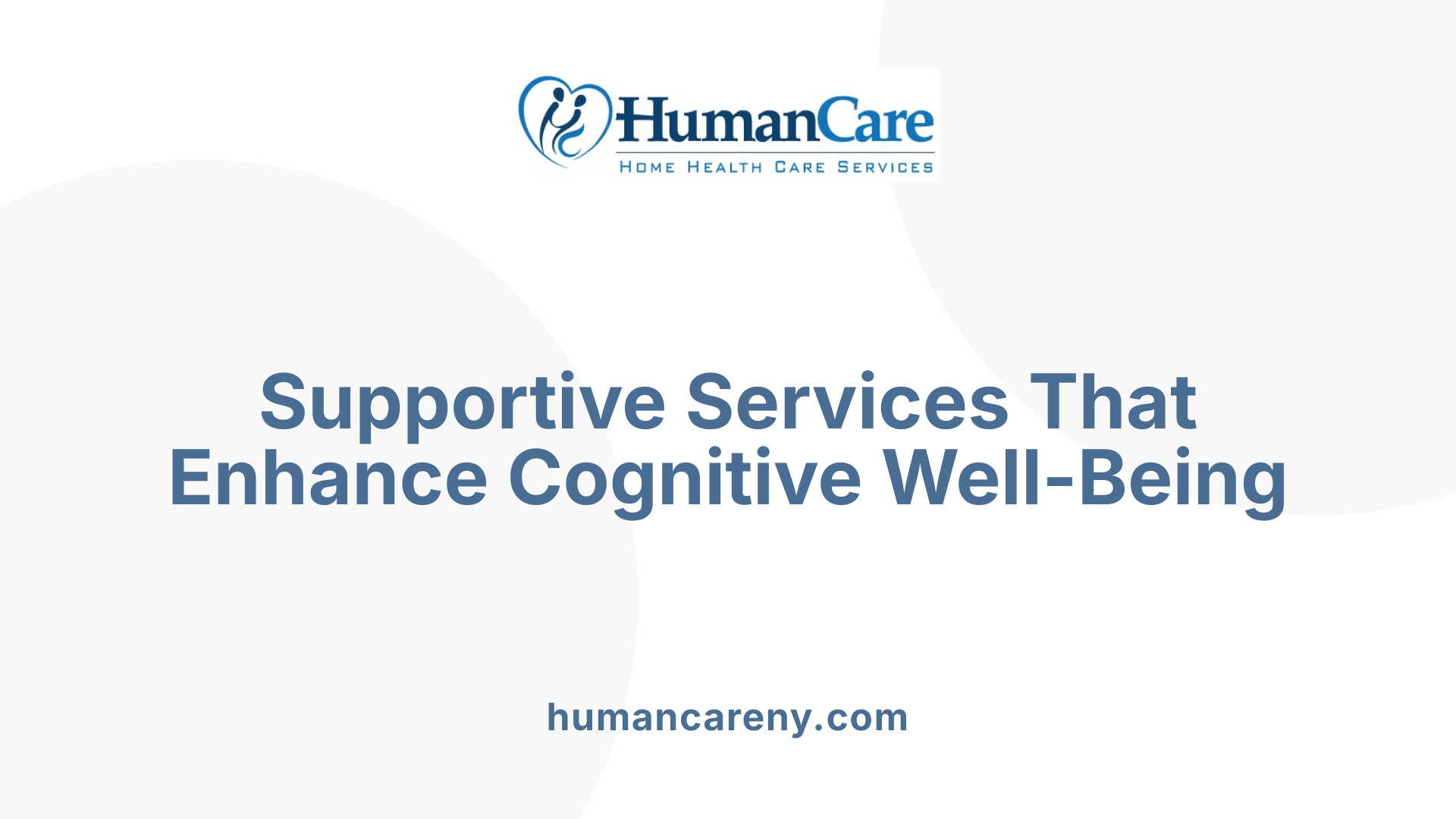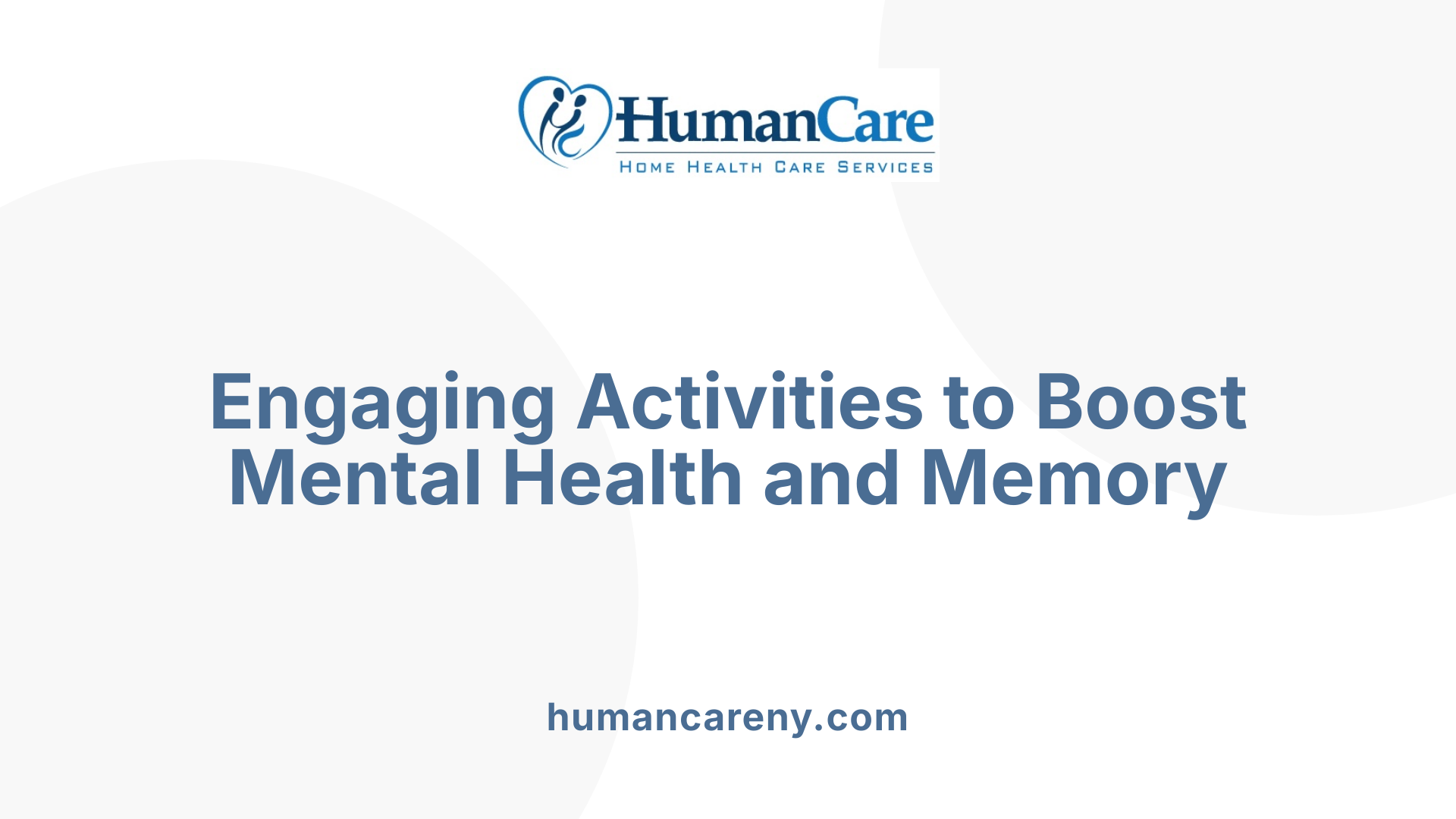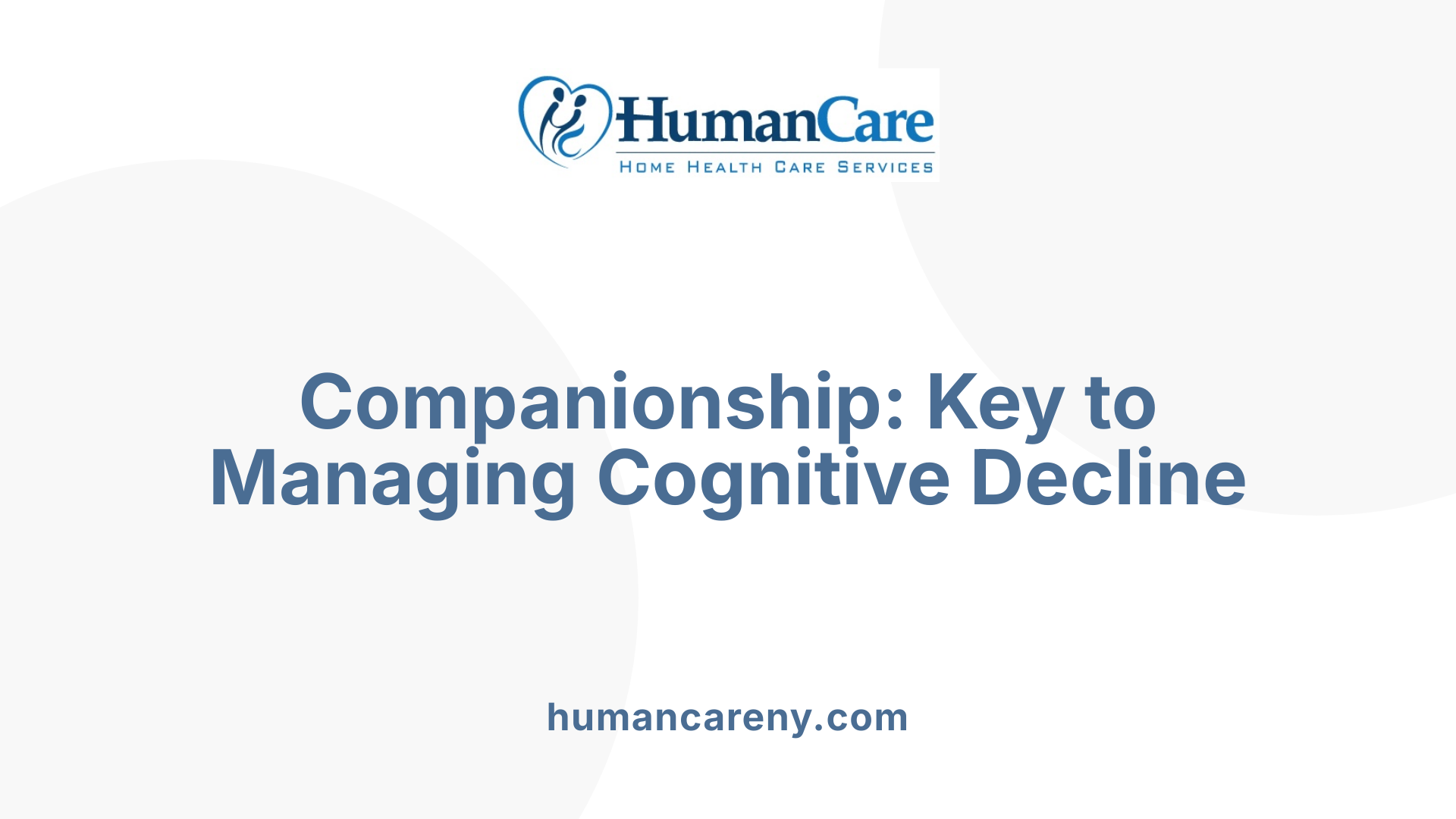Understanding the Significance of Companion Care in Cognitive Health
As the global population ages, more seniors face the challenges of cognitive decline, including issues like forgetfulness, confusion, and problem-solving difficulties. While these symptoms can be overwhelming, companion care at home emerges as a vital support system, helping seniors maintain independence, safety, and emotional well-being. This article explores how tailored companionship, mental stimulation, and engaging activities contribute to managing cognitive impairment, ultimately improving quality of life for elderly individuals.
The Benefits of Social Connection for Seniors with Cognitive Impairment
What are the benefits of companionship for seniors with cognitive impairment?
Companionship plays a vital role in supporting seniors who experience cognitive decline. Regular social interaction helps reduce feelings of loneliness and social isolation—factors linked to increased risks of depression, anxiety, and faster cognitive deterioration.
Engaging in conversations, shared hobbies, and mental activities like puzzles or reminiscing keeps the brain active, which is essential for maintaining cognitive functions such as memory, attention, and problem-solving skills. Emotional support from caregivers reassures seniors, lowering stress and creating a sense of security and belonging.
Moreover, companions often encourage physical activity—like walks or light exercises—which helps improve overall brain health and physical well-being. They also assist with daily routines, meal preparation, and medication reminders, promoting healthier habits and easier independence.
This consistent social engagement can delay the progression of cognitive issues, fostering a more positive, fulfilling life. Diplayed in relationships and daily routines, companionship strengthens emotional resilience, helping seniors feel valued and connected with the world around them.
Services Provided by Companion Care for Cognitive Support

What services provided by companion care aid elderly individuals with cognitive challenges?
Companion care supports seniors who experience cognitive decline by offering a variety of emotional, social, and practical services. Caregivers provide emotional support and companionship, which helps reduce feelings of loneliness and isolation, promoting emotional well-being.
A significant part of their role involves engaging seniors in cognitive stimulation activities. These include conversations, playing mental games, or reminiscing about past experiences. Such activities help keep the brain active and may slow the progression of cognitive decline.
Additionally, companion caregivers assist with everyday routines, such as basic grooming, meal preparation, light housekeeping, and medication reminders. They can also facilitate transportation to appointments or social outings, ensuring seniors remain socially active.
These personalized services are designed to meet each individual's needs and interests. By supporting both mental and physical health, companion care enhances overall quality of life and helps seniors maintain independence in their daily lives.
The Role of Routine and Structured Activities in Cognitive Health

What role does companion care play in supporting elderly individuals with cognitive decline?
Companion care is essential in helping seniors experiencing cognitive decline. It provides social interaction, emotional support, and assistance with everyday tasks, which collectively help reduce feelings of loneliness, depression, and behavioral problems.
One of the main functions of companion care is to promote mental stimulation. Caregivers engage seniors in conversations, shared hobbies, and cognitive activities like puzzles or reminiscing, which can help slow the progression of cognitive decline.
Structured routines and familiarity are also vital. Regular schedules for meals, medication reminders, or light exercises create a sense of security and reduce anxiety. For seniors with dementia or early cognitive issues, these routines help maintain independence and emotional stability.
Safety is another critical aspect. Caregivers monitor health, assist with mobility, and ensure a safe environment, reducing risks of accidents. This comprehensive support not only aids cognitive health but also boosts overall well-being.
In summary, companion care integrates social, emotional, and practical support through consistent routines and engaging activities. This holistic approach helps preserve cognitive functions, provides a comforting environment, and enhances the quality of life for seniors facing cognitive challenges.
Mental and Emotional Stimulation Activities for Cognitive Maintenance

How does companion care contribute to maintaining or improving mental health in seniors with cognitive challenges?
Companion care plays a vital role in supporting the mental health of seniors experiencing cognitive decline. Regular social interaction and emotional support help reduce feelings of loneliness and isolation, which are closely linked to mental health issues such as depression and anxiety.
Engaging seniors in various activities can stimulate their minds and promote cognitive function. For example, caregivers often introduce puzzles, memory games, or reminiscing sessions that challenge their thinking and help maintain mental sharpness. These activities are not only enjoyable but also essential for keeping cognitive skills active.
Physical activities, including walks, light exercises, or dance, are encouraged to enhance brain health by increasing blood flow and reducing mental fatigue. Hobbies like arts and crafts or listening to music foster a sense of achievement and provide mental engagement.
Sharing interests is another powerful tool to foster connection and emotional well-being. When caregivers and seniors engage in shared hobbies, cultural activities, or community events, they create meaningful relationships that bolster the senior’s sense of purpose and belonging.
The presence of a trusted companion offers stability and reassurance, especially when routines are consistent. This sense of security can lower stress levels and improve mood. Close relationships—such as with spouses or children—add another layer of emotional support, providing a protective buffer against anxiety and sleep issues.
In summary, compassionate and personalized companion care with a focus on mental stimulation helps seniors sustain cognitive abilities, reduces negative emotions, and enhances overall emotional stability. By nurturing mental and emotional health, caregivers contribute significantly to the quality of life and well-being of seniors facing cognitive changes.
Impact on Quality of Life and Overall Well-being
How does companion care affect emotional fulfillment and a sense of purpose?
Companion care provides seniors with meaningful social interactions, conversations, and engagement in hobbies. These activities create opportunities for seniors to feel valued, understood, and connected, which boosts emotional health. Regular companionship helps seniors maintain a sense of purpose, reducing feelings of sadness and loneliness.
In what ways does companion care offer safety and emergency support?
Companions are present during daily activities, ready to respond quickly if an emergency occurs. They help monitor safety hazards around the home and can assist with medication reminders or transportation, offering peace of mind to seniors and their families. This immediate support reduces risks and ensures prompt action when needed.
Does companion care help delay cognitive decline?
Yes, engaging seniors in mental stimulation activities like puzzles, memory games, and conversations supports cognitive health. Consistent routines and meaningful activities help maintain neural connections and cognitive functions, potentially slowing down the progression of dementia and other cognitive impairments.
How does companion care promote physical health?
Companions encourage seniors to participate in light physical activities such as walks or exercises, which assist in maintaining mobility and overall health. They also support healthy eating habits and assist with daily tasks, contributing to better physical well-being.
What reassurance does companion care provide to families?
Family members gain confidence knowing their loved ones are under trusted care, receiving emotional support, social interaction, and practical assistance. Regular updates and the ability to monitor safety provide additional reassurance, reducing caregiver stress and helping families feel more connected.
The Critical Importance of Compassionate Engagement in Cognitive Health Management

Why is companionship important in managing cognitive impairment in the elderly?
Companionship plays a vital role in helping seniors cope with cognitive decline. It offers social interaction and mental stimulation, which are essential for slowing cognitive deterioration and maintaining brain health.
Regular conversations, shared activities like puzzles or reminiscing, and engaging hobbies keep seniors' minds active. These interactions help preserve memory and emotional well-being while reducing feelings of loneliness and social isolation.
Beyond mental benefits, companionship encourages physical activity, fosters routines, and promotes a sense of normalcy and safety. For seniors experiencing forgetfulness, confusion, or problem-solving difficulties, a trusted companion creates a consistent environment that offers comfort and reassurance.
Furthermore, social engagement from companion care can reduce stress, depression, and anxiety—all of which can accelerate cognitive decline. Emotional bonds formed with caregivers help seniors feel valued, supported, and connected to the world around them.
In summary, companionship is a cornerstone for enhancing emotional stability, mental engagement, and overall health for seniors facing cognitive challenges. By providing consistent social interaction and tailored support, companionship nurtures their dignity and quality of life.
How does compassionate engagement support emotional and mental health?
Compassionate engagement through companion care creates a warm, trusting relationship that can significantly boost mood and confidence.
It offers emotional support during tough times by listening, reassuring, and providing comfort, which alleviates feelings of sadness and anxiety.
Meaningful conversations and participation in hobbies foster a sense of purpose, helping seniors feel more fulfilled and less isolated.
Activities like reading, games, or arts and crafts provide mental stimulation, aiding in memory retention and cognitive function.
Additionally, regular social interactions help prevent depression and mental health issues linked to long-term loneliness.
Ultimately, these bonds enrich seniors' lives, making them feel connected and valued—both critical factors in mental and emotional well-being.
Supporting Elderly Cognitive Health Through Compassionate Care
Companion care is a vital component in supporting elderly individuals facing cognitive decline. By fostering social engagement, mental stimulation, and emotional support, caregivers help slow the progression of impairment while enhancing overall well-being. Personalized routines, supportive activities, and a compassionate approach can significantly improve the quality of life for seniors, allowing them to maintain independence, safety, and happiness in their daily lives. As aging populations grow, the importance of compassionate, tailored companion care becomes even more crucial in promoting healthy, fulfilling aging.
References
- Companion Care at Home Supports Seniors Experiencing ...
- How Companion Care Improves Emotional Well-Being in ...
- Companion Care Benefits for Seniors
- The Vital Role of Elderly Companion Care in Enhancing ...
- How Companion Care Helps Seniors Combat Loneliness
- Companion Care Services & Their Benefits for the Elderly
- Companion Care Services for Seniors in NYC & CHI
- Family Caregiving Roles and Impacts



